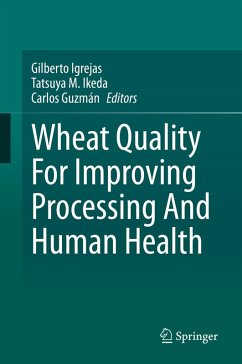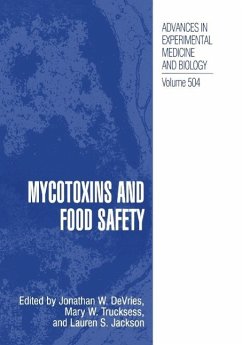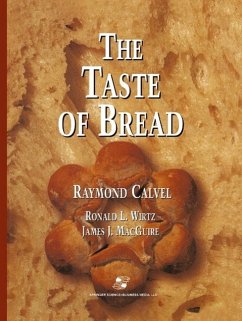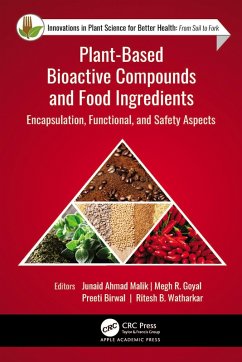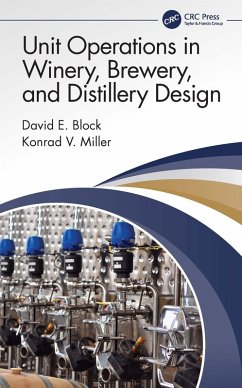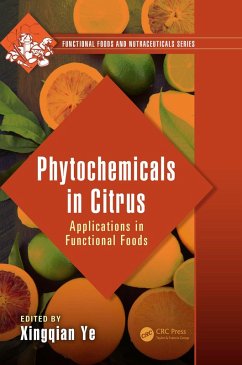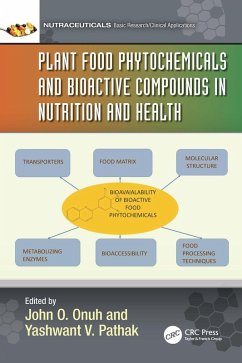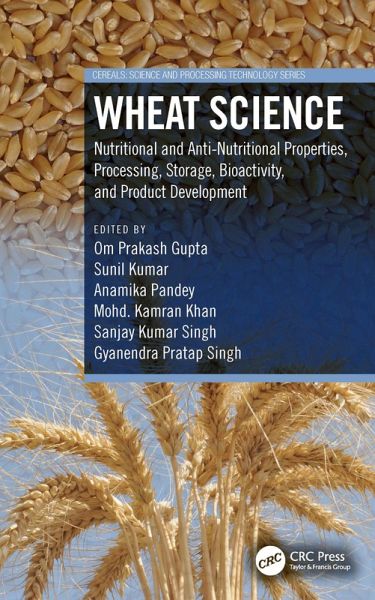
Wheat Science (eBook, PDF)
Nutritional and Anti-Nutritional Properties, Processing, Storage, Bioactivity, and Product Development
Redaktion: Gupta, Om Prakash; Singh, Gyanendra Pratap; Singh, Sanjay Kumar; Khan, Mohd. Kamran; Pandey, Anamika; Kumar, Sunil
Versandkostenfrei!
Sofort per Download lieferbar
67,95 €
inkl. MwSt.
Weitere Ausgaben:

PAYBACK Punkte
34 °P sammeln!
Globally, significant work has been done to enhance our current understanding of the nutritional and anti-nutritional properties, processing, storage, bioactivity, and product development of wheat, opening new frontiers for further improvement. Wheat Science: Nutritional and Anti-Nutritional Properties, Processing, Storage, Bioactivity, and Product Development addresses the topics associated with the advances in understanding the wheat biochemical, nutritional, and rheological quality. Improving crop varieties by either conventional breeding or transgenic methods to obtain nutritionally enhanc...
Globally, significant work has been done to enhance our current understanding of the nutritional and anti-nutritional properties, processing, storage, bioactivity, and product development of wheat, opening new frontiers for further improvement. Wheat Science: Nutritional and Anti-Nutritional Properties, Processing, Storage, Bioactivity, and Product Development addresses the topics associated with the advances in understanding the wheat biochemical, nutritional, and rheological quality. Improving crop varieties by either conventional breeding or transgenic methods to obtain nutritionally enhanced crops has the advantage of making a one-time investment in research and development to have sustainable products.
Features:
Processing and storage technologies have impacted the nutritional quality and the bioavailability of nutrients in wheat. Due to its peculiar grain protein composition, especially gluten protein, wheat has extensive usage in making numerous end products, eaten round the clock. Researchers have demonstrated a significant effect of alteration of flour-processing technologies on the rheological quality of end products. This book provides a holistic understanding and covers recent developments of wheat science under one umbrella. Emphasis is placed on current trends and advances in nutritional and anti-nutritional properties, processing, storage, bioactivity, and product development. Additionally, efforts have been made to compile the available information on the application of different ingredients of wheat in the industry and pharma sectors.
Features:
- Includes topics associated with the nutritional composition and anti-nutritional properties
- Addresses the effects of different processing technologies on flour yield and end products
- Reviews the effects of storage on nutritional, baking and rheological quality, organoleptic quality, etc.
Processing and storage technologies have impacted the nutritional quality and the bioavailability of nutrients in wheat. Due to its peculiar grain protein composition, especially gluten protein, wheat has extensive usage in making numerous end products, eaten round the clock. Researchers have demonstrated a significant effect of alteration of flour-processing technologies on the rheological quality of end products. This book provides a holistic understanding and covers recent developments of wheat science under one umbrella. Emphasis is placed on current trends and advances in nutritional and anti-nutritional properties, processing, storage, bioactivity, and product development. Additionally, efforts have been made to compile the available information on the application of different ingredients of wheat in the industry and pharma sectors.
Dieser Download kann aus rechtlichen Gründen nur mit Rechnungsadresse in A, B, BG, CY, CZ, D, DK, EW, E, FIN, F, GR, HR, H, IRL, I, LT, L, LR, M, NL, PL, P, R, S, SLO, SK ausgeliefert werden.




